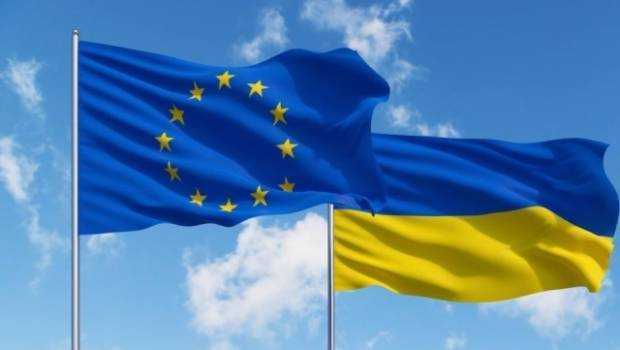EU approves up to €1.4 billion military aid to Ukraine from Russian frozen assets
24 June, 2024 Caesar self-propelled howitzer of the Armed Forces of Ukraine. Photo from open sources EU countries today approved a first tranche of up to EUR1.4 billion in military aid for Ukraine coming from the proceeds of frozen Russian assets, according to four diplomats.
Politico learned about it from European diplomats. It is emphasized that the money would go directly to the direct purchase of weapons, in particular, air defense systems. The money is channeled to Ukraine through the Ukraine Assistance Fund (UAF), but payments have been blocked by Hungary.
However, the Council's legal service argued that Budapest could not stop these payments because it had abstained in the vote earlier this year creating the UAF. The reason allowing the work-around is that the funds do not come from EU taxpayers.
 Flags of the EU and Ukraine. Photo illustration
Flags of the EU and Ukraine. Photo illustration
The money won't be used for reimbursements, as is normally the case with the UAF, but for direct purchases of kit like ammunition and aerial defense systems.
A quarter of the amount will be used for purchases from Ukrainian industries. Politico reported that EU countries had until 11 a.m. to voice their opinion, and none casted a negative vote, according to an internal Council message seen by POLITICO. The decision did not require unanimity, meaning Hungary could not block it.
The final figure of the amount of profits from the frozen assets that will go to Kyiv is still unclear, but diplomats said it ranges between EUR1.2 billion and EUR1.4 billion.
 Production of 155-mm DM121 ammunition. Photo credits: Rheinmetall
Production of 155-mm DM121 ammunition. Photo credits: Rheinmetall
The formal announcement is expected at a meeting of EU foreign ministers in Luxembourg on Monday. It is worth noting that Josep Borrell, High Representative of the European Union for Foreign Affairs and Security Policy, said earlier on Monday that the EU had developed a legal way to circumvent Hungary's blocking of arms purchases for Ukraine using the proceeds of frozen Russian assets this year.
As previously reported, in May, EU ambassadors agreed on the transfer of the proceeds from taxed excess profits of frozen Russian assets to Ukraine.